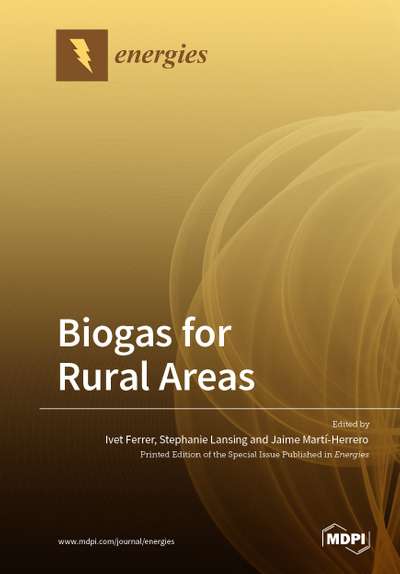
Bioenergy is renewable energy obtained from biomass-any organic material that has stored sunlight in the form of chemical energy. Biogas is among the biofuels that can be obtained from biomass resources, including biodegradable wastes like manure, sewage sludge, the organic fraction of municipal solid wastes, slaughterhouse waste, crop residues, and more recently lignocellulosic biomass and algae. Within the framework of the circular economy, biogas production from biodegradable waste is particularly interesting, as it helps to save resources while reducing environmental pollution. Besides, lignocellulosic biomass and algae do not compete for arable land with food crops (in contrast with energy crops). Hence, they constitute a novel source of biomass for bioenergy.
Biogas plants may involve both high-tech and low-tech digesters, ranging from industrial-scale plants to small-scale farms and even households. They pose an alternative for decentralized bioenergy production in rural areas. Indeed, the biogas produced can be used in heaters, engines, combined heat and power units, and even cookstoves at the household level. Notwithstanding, digesters are considered to be a sustainable technology that can improve the living conditions of farmers by covering energy needs and boosting nutrient recycling. Thanks to their technical, socio-economic, and environmental benefits, rural biogas plants have been spreading around the world since the 1970s, with a large focus on farm-based systems and households. However, several challenges still need to be overcome in order to improve the technology and financial viability.
*Available for Download Only
MDPI Book Link (available for purchase)
Publication Details
- Published: 2022
- Publisher: Mdpi AG
- ISBN-10: 3036532374
- ISBN-13: 978-3036532370